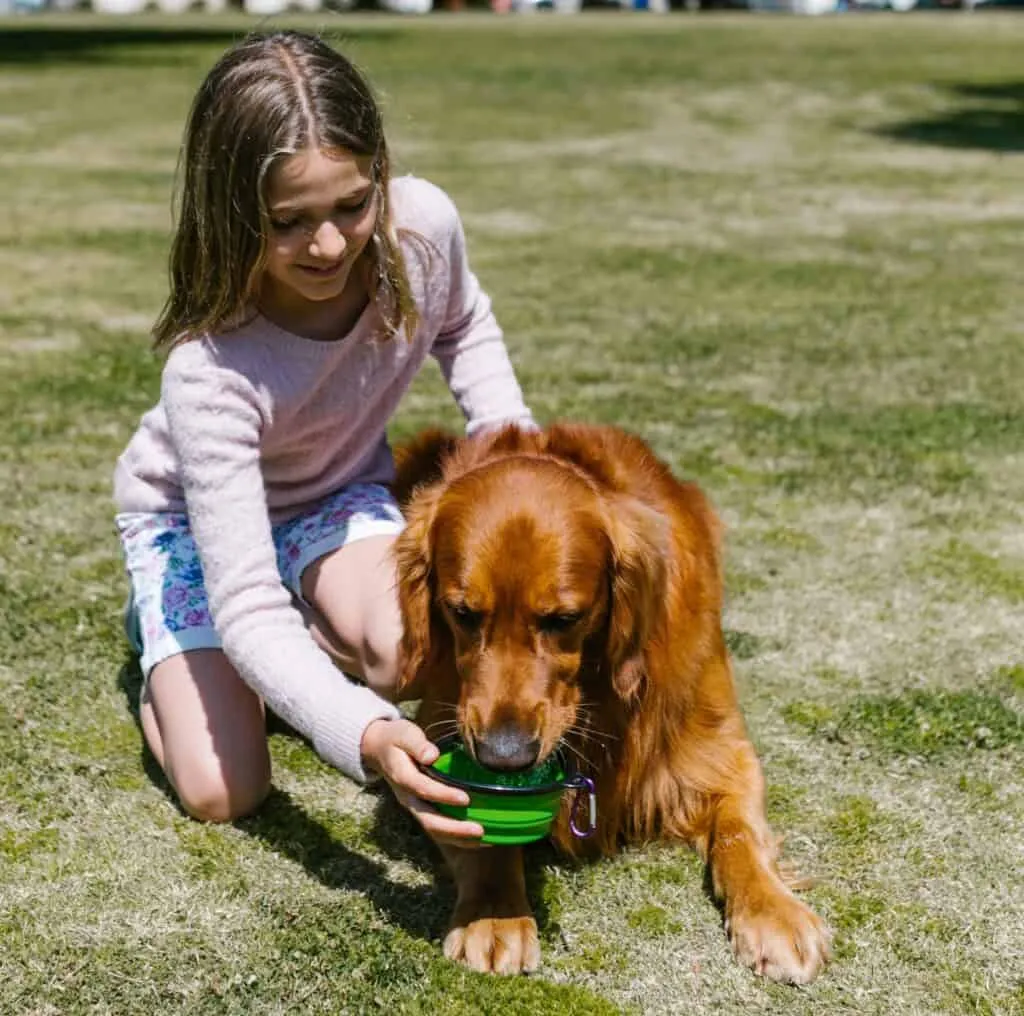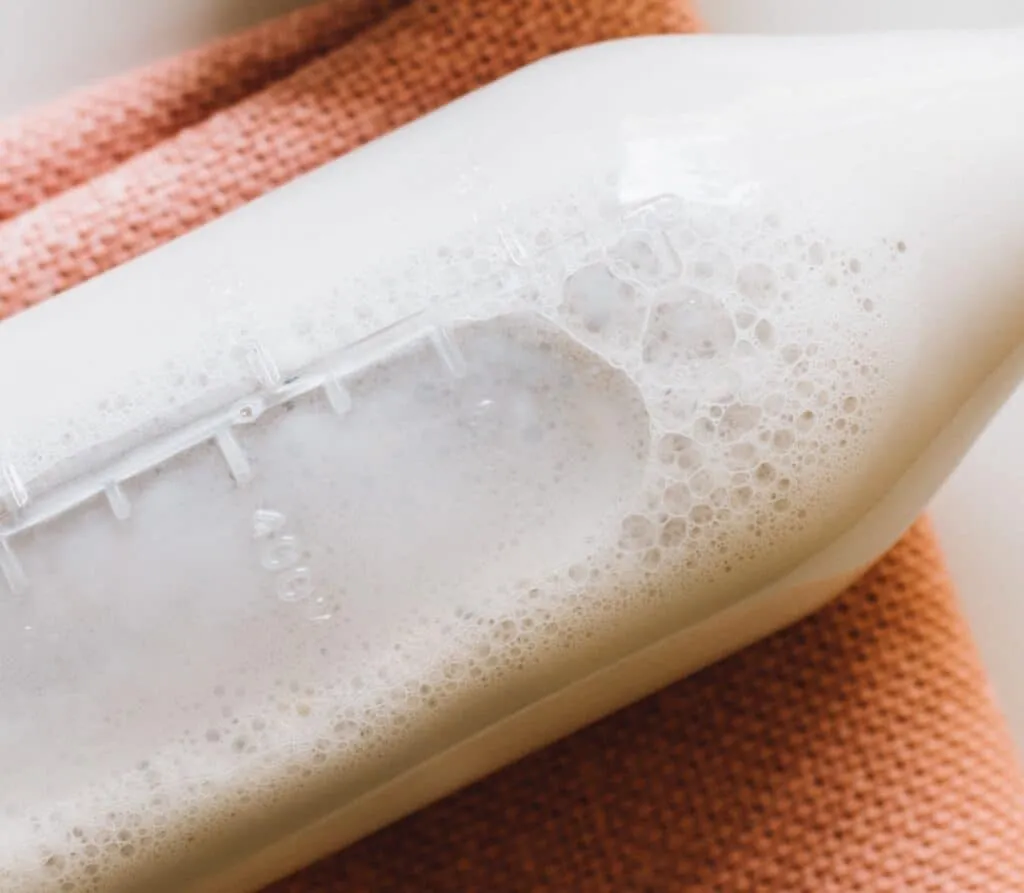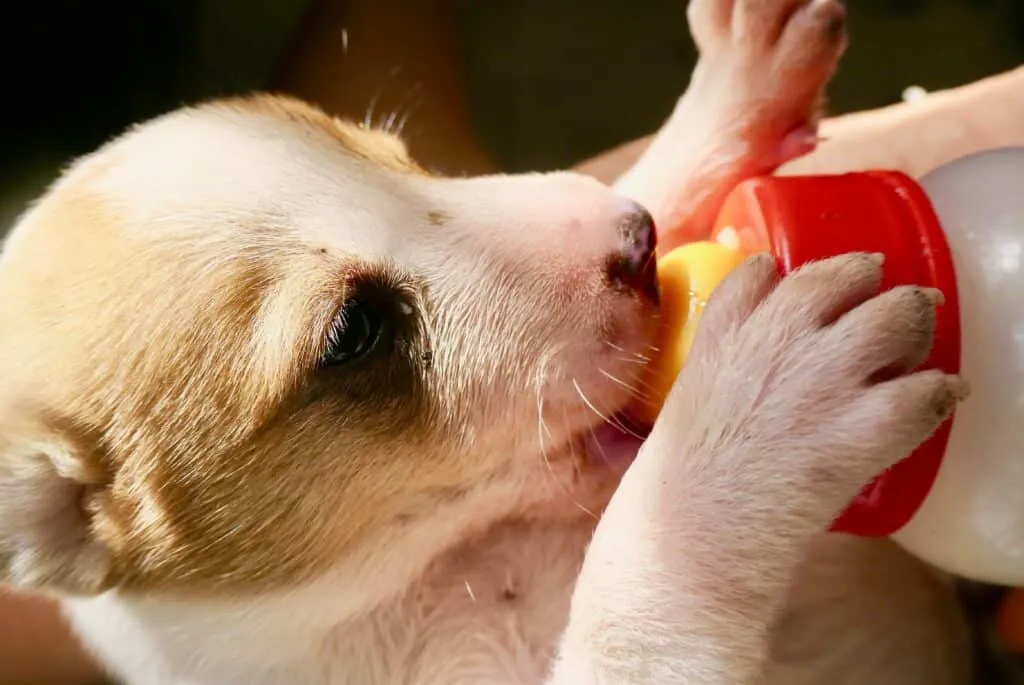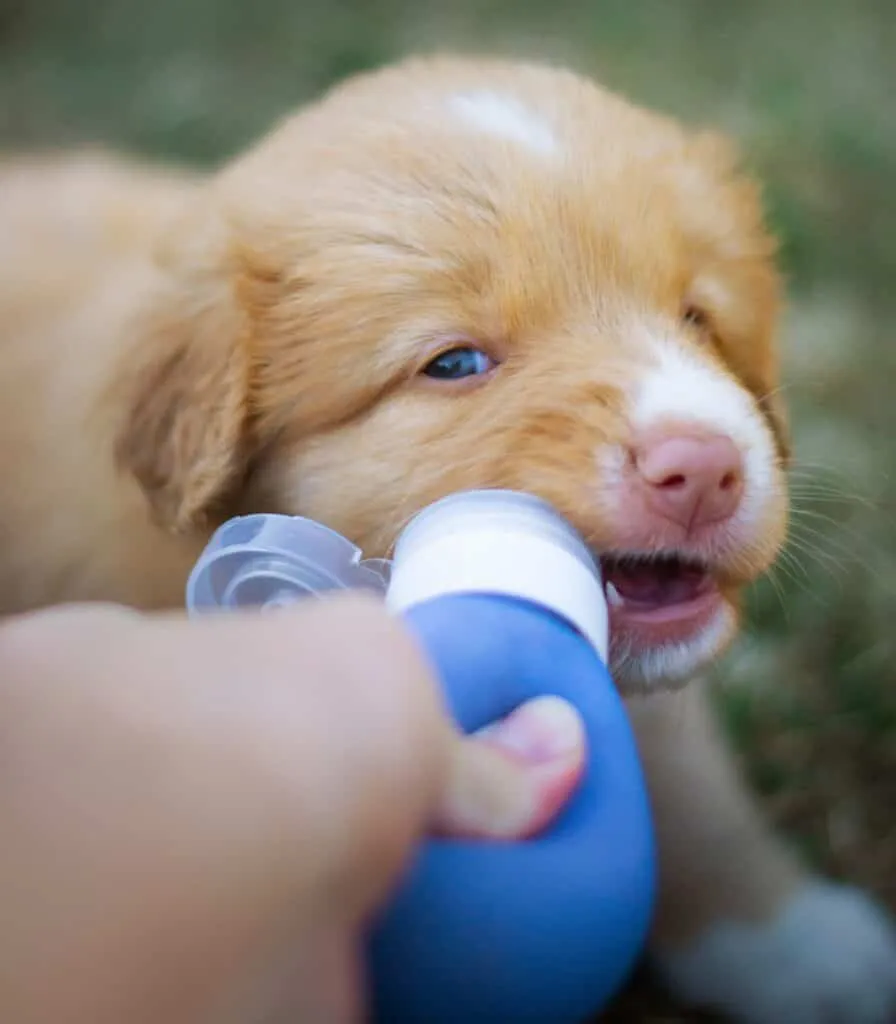As a responsible dog owner, you always aim to provide your pup with the best possible care and nutrition, especially during their early stages of life. One essential aspect of this care is ensuring they take in all the right nutrition as they grow up.
As young pups have to leave their mother’s side when they get adopted, getting a dose of their mom’s milk is no longer possible. A part of your responsibility then is to get them a puppy milk replacer.
In this blog post, let’s discover the importance of getting your young puppy a milk replacer to nurture their development. We will also explore the available options for you.

Getting a Puppy is a Big Responsibility
Inasmuch as taking care of your adorable puppies is rewarding, it is still a big responsibility. There are so many things to consider and to prepare.
Welcoming a puppy into your family means taking on the responsibility for their overall well-being. Puppies require proper nutrition, especially during their early development stages when they are too young to consume solid food.
A basic puppy checklist of things to get is helpful. And the most important thing is making sure they grow up healthy, trained, and happy.
To ensure that they grow up healthy, it is essential that our puppies take their milk when they are young and at the right time.
If the mother dog is not around, it is your responsibility to find a substitute for dog milk. That is why there are puppy milk replacers.

Why is a Puppy Milk Replacer Essential?
Providing milk to newborn puppies when their mother is not around is crucial for their survival and healthy development.
It contains bioactive compounds and antibodies
Newborn puppies have very specific nutritional needs that are best provided by their mother’s milk. A mother’s milk, especially the colostrum or first milk, contains vital antibodies that would support the immune system and protect the young puppies from infections. Other bioactive compounds, like proteins and immunoglobulins, in colostrum milk promote the pup’s overall growth and health.
It helps in hydration
Milk is also a significant source of hydration for newborn puppies. In their early days, puppies are not able to consume water directly and depend entirely on their mother’s milk for hydration. Providing milk replacers ensures that they take in enough fluids to stay properly hydrated, preventing dehydration and associated health issues.
It satisfies a dog’s nutritional needs
Newborn puppies have delicate digestive systems that are not yet fully developed. Puppy milk replacers are specifically formulated to provide the necessary nutrients, vitamins, minerals, and essential fats for puppies to grow and develop healthily.
These replacers are designed to closely resemble the composition of a mother dog’s milk, ensuring that puppies receive the ideal balance of nutrients required during their early stages of life.
It aids in weaning
As puppies grow, they gradually transition from solely consuming milk to incorporating solid food into their diet. Puppy milk replacers serve as an intermediary step during this weaning process.
Sucking in a feeding bottle or lapping on a dog dish provides introduces puppies to the concept of eating. This transition period helps puppies adjust to solid food more smoothly.
It provides more bonding time
In addition to physical nourishment, nursing provides emotional and behavioral benefits to newborn puppies. The act of nursing promotes bonding, comfort, and a sense of security for the puppies.
Providing milk replacers through bottle feeding or an appropriate nursing device allows you to hold your puppies for some time. It helps fulfill this nurturing aspect of their growth, promoting their emotional well-being.
Without access to their mother’s milk, providing a suitable milk replacer ensures that the puppies receive the essential nutrients they require for proper development.
It’s important to note that while a puppy milk replacer is essential for certain situations, it is not meant to replace a mother dog’s milk or a well-balanced puppy diet. The goal is to provide puppies with the best possible start in life when circumstances prevent them from receiving maternal care or during the weaning process.

What to Look for in a Good Puppy Milk Replacer?
When selecting a good puppy milk replacer, look for a formula with high-quality proteins. Casein and whey protein are easily digestible proteins that would promote your pup’s growth, specifically muscle development and body strength.
Choose also a formula that has healthy edible fats as a source of energy and brain development. Essential fatty acids, such as omega-3 and omega-6 fatty acids, support cognitive function and promote a shiny, healthy coat.
Carbohydrates are also another key ingredient that would contribute to promoting a healthy digestive system among puppies.
A good puppy milk replacer should be fortified with essential vitamins and minerals. These nutrients are vital for supporting various bodily functions, such as bone development, immune system health, and overall growth. Look for milk replacers that contain a balanced mix of vitamins, such as vitamin A, vitamin D, and vitamin E, and minerals, such as calcium, phosphorus, and zinc.
Prebiotics and probiotics are also important. These are beneficial in boosting the functions of the digestive system. Probiotics, such as lactobacillus, introduce beneficial bacteria into the digestive system. Prebiotics support the growth of healthy gut bacteria for better digestion.

Best Puppy Milk Replacer
When you have a rescued puppy or adopted a new one who still needs milk, but the mother dog is no longer around, you may opt to feed your young puppies some puppy milk replacer.
When it comes to choosing the best puppy milk replacer, it’s essential to consider several factors. Look for a product specifically formulated for puppies, as their nutritional needs differ from adult dogs. Opt for a milk replacer that closely resembles their mother’s milk in terms of nutrients and composition.
Additionally, select a milk replacer that contains essential nutrients such as proteins, fats, vitamins, and minerals. These nutrients are vital for supporting your puppies’ growth, bone development, and overall health. Consult your veterinarian for recommendations on reputable brands and specific milk replacers suitable for your puppies’ breed and age.
Commercial dog milk replacers may be available for purchase at your local pet store. Some puppy milk replacers are also available online.
This one is our personal pick as it works for other animals like calves, kids, lambs, and kittens. If you have a multi-pet household, this would be the best option to supplement baby animals with complete nutrition.

How Do I Feed My Puppy With A Milk Replacer?
Newborn puppies must intake food every two to three hours every day. This is only a general guide. Some puppies may need more frequent feeding, especially when they are weak.
Since newborn pups cannot eat solid foods yet, it is just proper to supplement them with a milk replacer when their mother is no longer around (as in the case of adopted and rescued dogs).
Things to Note Before Feeding Time
Most of these milk replacement formulas have preparation and feeding instructions on their labels. Once the formula is prepared, get your puppies to consume the liquid at once.
Any reconstituted formula must be stored in the refrigerator for up to 24 hours only. After that, the same should be discarded, and a new one must be mixed and prepared.
A puppy formula requires bottle-feeding puppies. Place the milk replacement mixture in feeding bottles for pets. The nipple should be holed up in a manner that will stimulate suckling.
Also, the hole of the nipple should not be too large so that milk flows freely when the bottle is turned upside down. It should also not be too little that the puppy would have a hard time sucking.
Do not use human bottles for babies. These bottles come with large nipples that the end might be too big for your puppies to take in their mouths.
Remember to create a quiet and comfortable environment during feeding time. Minimize distractions and noises to ensure your puppies can focus on their meal and establish a positive feeding routine.

Feeding Time of Puppy Milk Replacers
Lay your puppy on his stomach. Imitate the position he would be in when he is nursing from his mom.
With a finger, open the puppy’s mouth gently and allow his mouth to touch the nipple of the feeding bottle. This will instinctively make him try to suck on the nipple.
Position the bottle at a tilting angle to make him intake some milk. When he has finished feeding, make him burp by holding him against your shoulder and, at the same time, patting his back (just like what we do with babies!)
Do not force your puppy to drink milk when he does not want to.
Also, monitor that he is not drinking too fast or allow him to nurse too quickly. When your puppy wants or needs some food but does not know how to suck, you may try using a medicinal dropper or nursing syringe to introduce him to the taste of milk substitutes.

Time for Some Puppy Food
As your weaned puppies grow, they will need to transition to solid puppy foods. Slowly introduce your puppies from milk formula to puppy food. Do not change his diet immediately or rush him into eating dry puppy food.
After the first few weeks of weaning, you may introduce them to drinking from a dish feeder . Once they have learned to lap on the water from a bowl, you may start feeding them a watery gruel.
To make a gruel, mix some milk powder in water and add some ground dry puppy food. Warm it up in a pan over low heat to create a watery consistency.
Eventually, thicken the mixture as they grow and learn to lap and consume food from their dishes. Monitor your puppies’ acceptance and digestion of the new food, making adjustments as necessary. Over time, they would learn and love to eat puppy food as is.

Final Thoughts
Nurturing your puppies with the best puppy milk replacer is an important part of their early development. Providing them with nutrition ensures they are provided with complete nutrients for optimal growth.
When it comes to what is best for our furry companions, do not forget to consult the veterinarian. Every puppy is unique, with specific needs that would require personalized advice from a vet.
With the right puppy milk replacer, proper care, and training, you will soon have a healthy and happy pet.